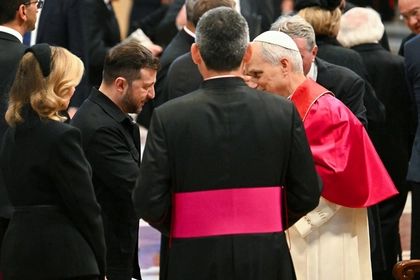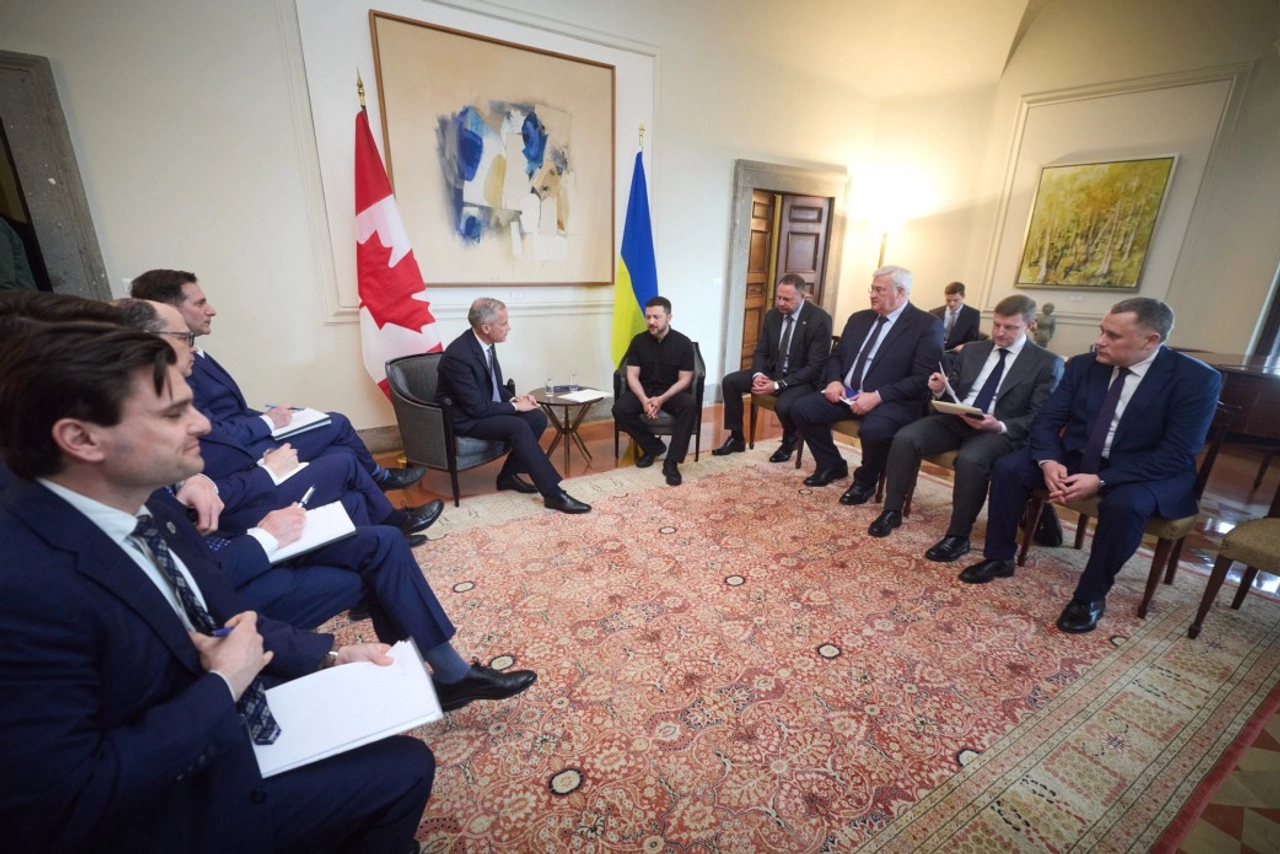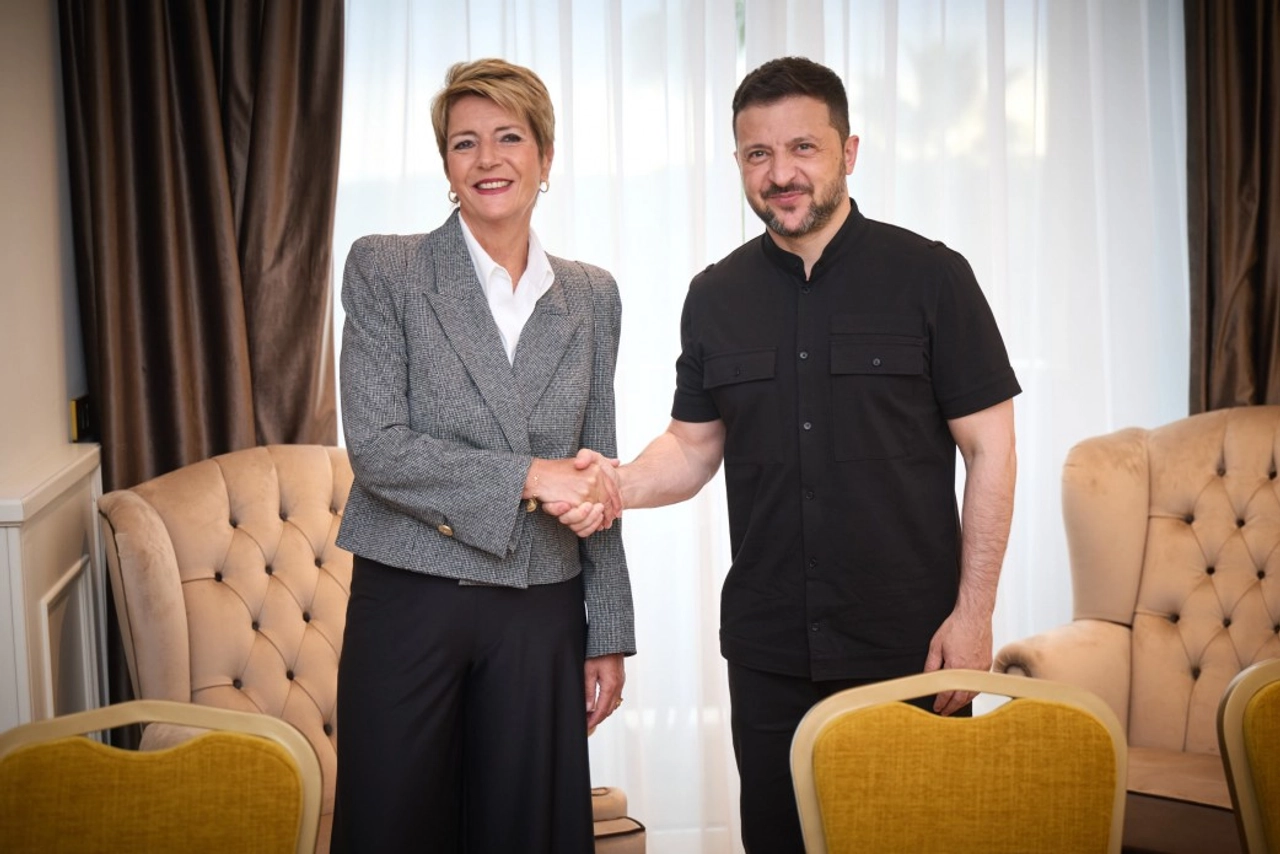In Rome on Saturday, President Volodymyr Zelensky met with Swiss President Karin Keller-Sutter and separately with Canadian Prime Minister Mark Carney, who as the current holder of the G7 Presidency confirmed the inviation for Ukraine’s leader to attend the Summit of the world’s foremost democratic governments in June.
Zelensky held his first meeting with the Prime Minister of Canada, during which they discussed the full and unconditional ceasefire, pressure on Russia, continued support for Ukraine, and Canada’s Presidency of the G7, according to the Ukrainian Presidential Office.
Follow our coverage of the war on the @Kyivpost_official.
“We admire what you are doing. We admire your commitment to peace, which you have demonstrated again this week. And let me underscore that there can be no peace without the full support and participation of Ukraine – and that you have our absolute support,” said Carney.
Zelensky thanked Canada and the Canadian people for their unwavering support of Ukraine since the very beginning of Russia’s full-scale invasion.
The President said this week there was a real opportunity to take an important step toward ending the war – a ceasefire could have been reached if the meeting between Ukraine and Russia in Turkey had taken place at the highest level.

Other Topics of Interest
Pope to meet Zelensky, recalls ‘martyred Ukraine’
New Pope reaches out to Zelensky and Ukraine.
“We were truly expecting Putin, but he didn’t come.” said Zelensky. “We believe he is afraid of direct bilateral talks. Anyway, I think the decision on the exchange of prisoners of war is very important. One thousand people – it’s a lot. And I hope we will get this result.”
Zelensky gave a brief update on the talks in Istanbul and stressed the importance of coordinating joint efforts with partners, his office said.
“We must increase the pressure on Russia, on Putin, to truly achieve peace as soon as possible. And, of course, an unconditional ceasefire is essential. That’s why pressure is needed – more pressure, more sanctions. We are grateful to you for your sanctions packages, as well as to the European leaders and, of course, to the United States of America,” Zelensky said.
Zelensky talked with Carney about Russian missile and drone strikes on civilians, saying that Ukraine urgently needs enhanced air defense to protect lives.
The Preidential Office said: “Particular attention was given to Canada’s priorities as G7 President. Ukraine is counting on robust additional sanctions – especially secondary sanctions – targeting the banking and energy sectors, as well as Russia’s shadow tanker fleet. It is also critical that continued support for Ukraine, the achievement of a just peace, and the guarantee of security remain on the G7’s agenda.
“The two leaders also discussed defense, energy, and economic cooperation, potential joint production projects, and Canada’s participation in Ukraine’s reconstruction.”
Zelensky invited Mark Carney to visit Ukraine, while Carney reciprocated by confirming the invitation for the Ukrainian president to take part in the G7 Summit in June.
Also on Saturday in Rome, Zelensky met with President of Switzerland Karin Keller-Sutter.
Zelensky also thanked her for Switzerland’s support of Ukraine and its peace efforts.
“We are also grateful for the humanitarian support provided by your Government, especially for what matters most to us: shelters for our schools, for our children. Thank you for this assistance,” Zelensky said.
During the meeting, the leaders spoke about securing a ceasefire, sustaining support for Ukraine, the need to increase pressure on Russia, humanitarian demining, implementing school meals programs, and food security measures.
According to his office, Zelensky gave Keller-Sutter an update on the negotiations in Istanbul, emphasizing “the importance of coordinating efforts with the United States, maintaining unity, and jointly pressuring Russia to achieve at least the first step toward ending the war – a full and unconditional ceasefire.
“Special focus was placed on continued assistance to Ukraine, including funding Swiss companies’ participation in the country’s reconstruction.”


